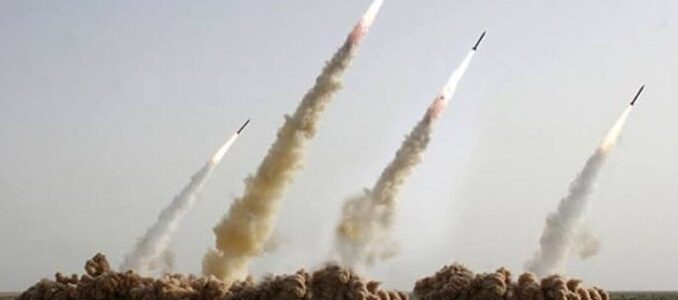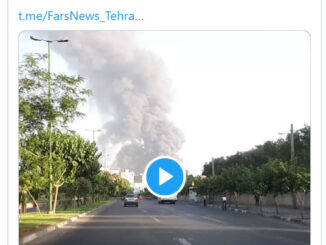
Iran has fired more than 100 ballistic missiles into Israel, according to the latest reports, after the United States warned Israel this morning that an attack was imminent.
Israel had time to move its cabinet members and Mossad to safety prior to the attack, and Israel is expected to issue a report shortly detailing what damage—if any—was done.
Another wave of missiles from Iran is expected.
Today’s missiles are different from what Iran sent into Israel in April. Today’s missiles are ballistic missiles that travel far more quickly, and multiple missiles were launched at once, making it difficult for Israel’s defenses to intercept with 100% accuracy. It is widely thought that some missiles made it through, although no reports of casualties have been reported at this time.
The fear factor for the world that watches is not that Iran’s missiles will inflict some catastrophic damage upon Israel—it is Israel’s likely response to the missile volley, which could be focused on economic damage. For Iran, this economic damage would come from Israel inflicting damage to Iran’s oil industry, which makes up about half of Iran’s budget.
If Israel is successful at disrupting Iran’s oil exports, which mainly go to China, or disrupts tanker traffic in the area, it could send global oil prices higher.
Oil prices were already trading up on the rumors leading up to the attack on Israel. At 10 am ET this morning, West Texas Intermediate (WTI) crude was trading at $70.16 per barrel, up 2.92% (+$1.99), while Brent crude was also seeing significant gains, trading at $73.61 per barrel, up 2.66% (+$1.91).
Prices are now even higher, with both benchmarks up more than 5% on the day, with Brent trading at $75.35 per barrel.
By Julianne Geiger for Oilprice.com
ENB Pub Note: A key point from Josh Young on X.
Looking at his source, Israel could take out 95% of Iran’s oil in one location. I was not aware of this fact. It would not surprise me, and this could be 3.5 Mbpd off the market from Iran. That would have a significant impact. China is buying 1.5 Mbpd from Iran while they are stockpiling for a potential war.
It is noteworthy that this Israel watcher is focusing on Kharg Island (Iran’s oil export infrastructure): https://t.co/TuV3E4Ue4j
— Josh Young (@Josh_Young_1) October 1, 2024
Iranian Ballistic Missile Strikes Tel Aviv
Wait for it……….. 😲😲😲
Turn Notifications 🔔 ON for Further Updates #IRAN #ISRAEL #GAZA #TelAviv #Jerusalem #IronDome pic.twitter.com/E74GiBGkcw
— Culture War (@CultureWar2020) October 1, 2024






